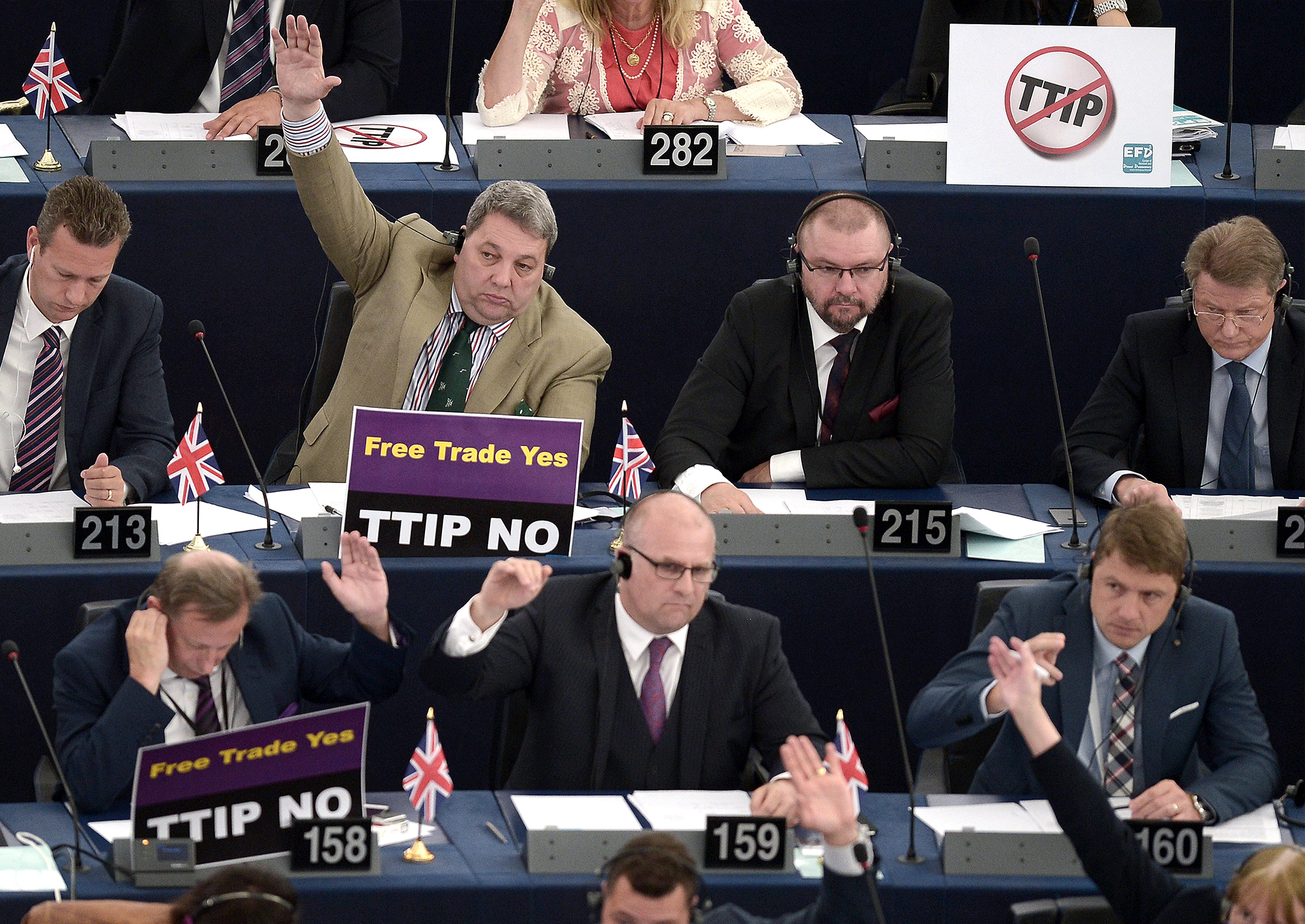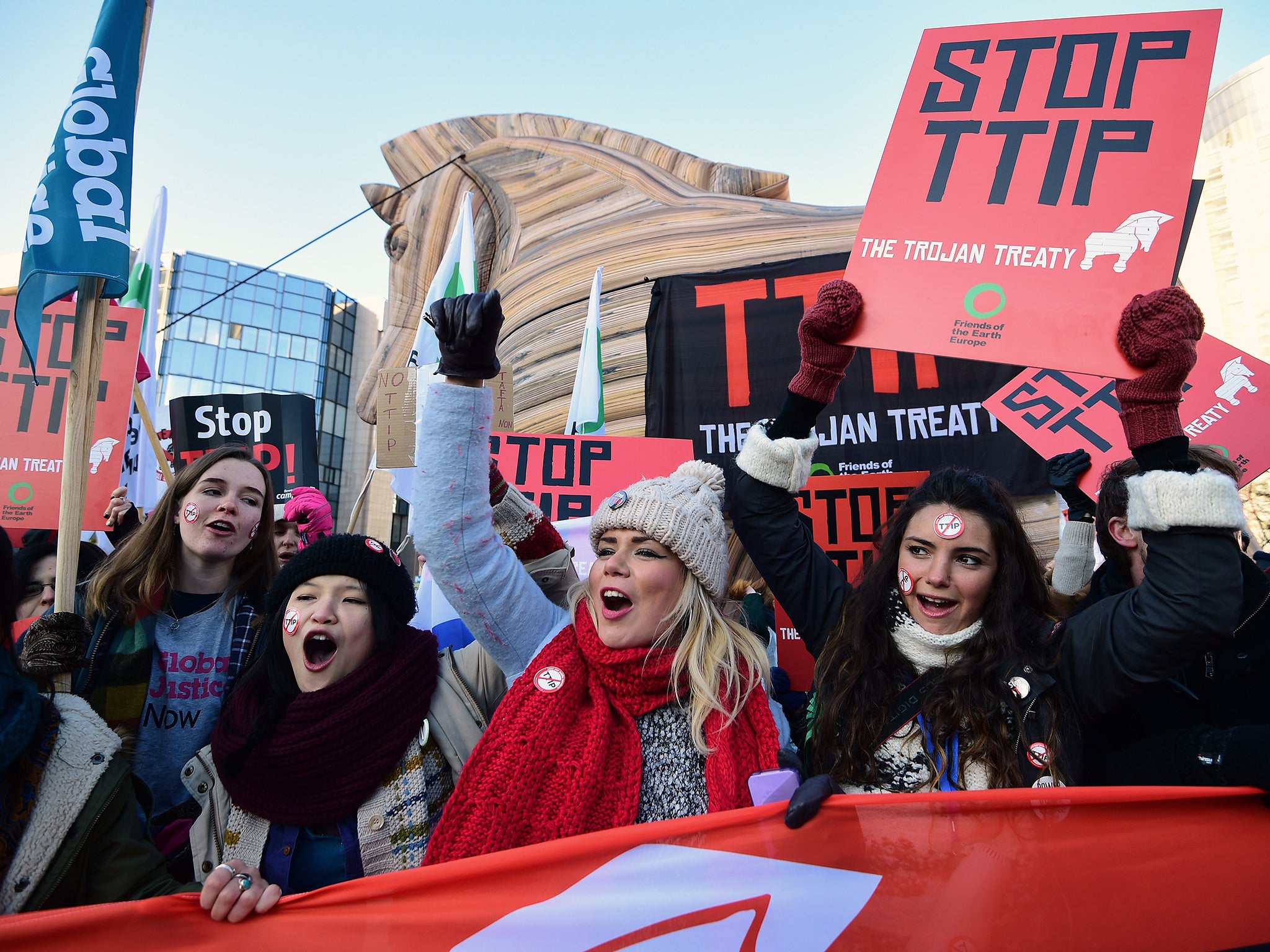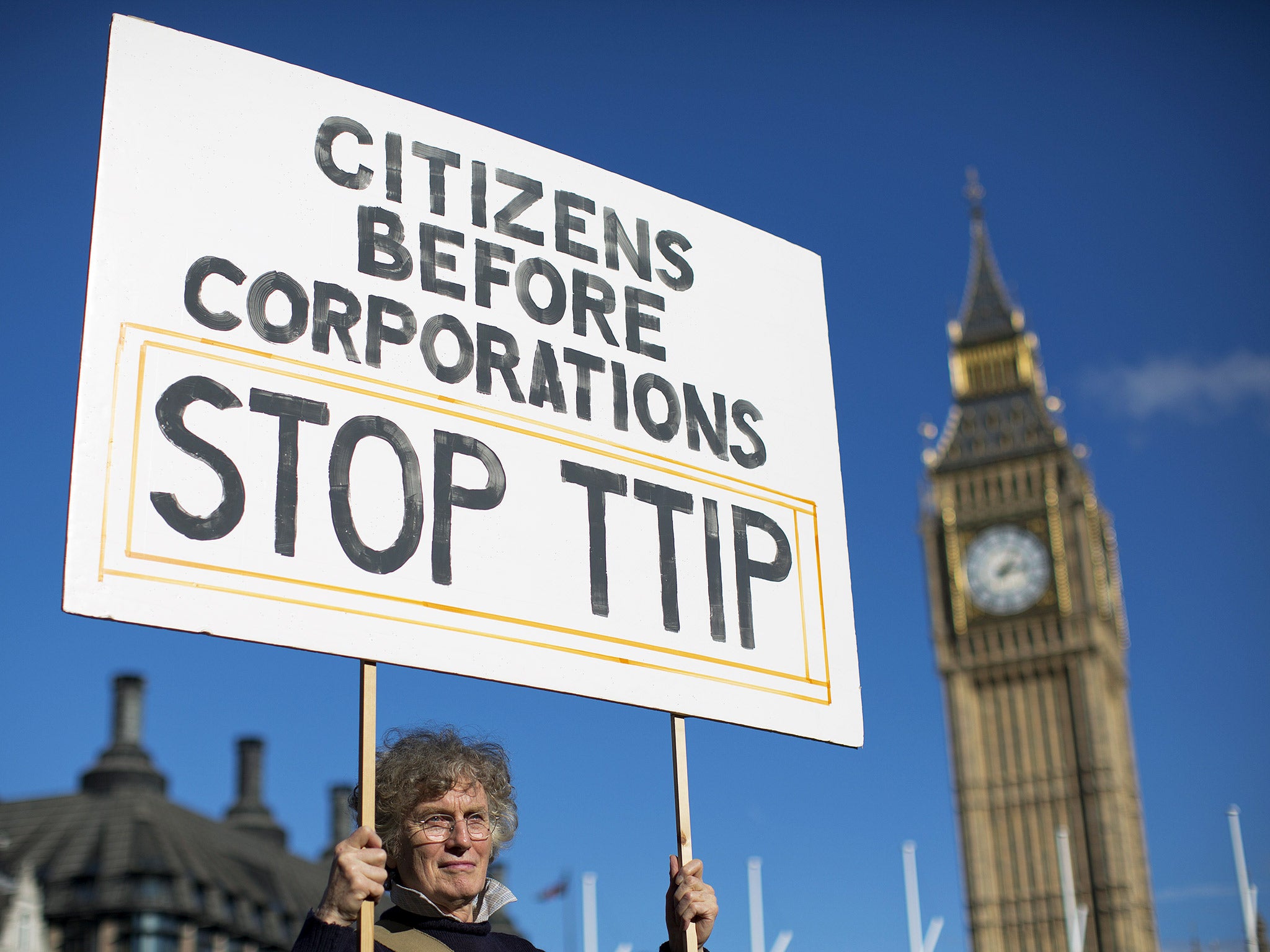TTIP: Here's why MEPs have been protesting it, and why you should too
Despite all consultations on the huge trade deal being secret, 92 per cent of those involved have been corporate lobbyists

TTIP is a Trojan horse, with an immeasurable number of corporations hidden inside of it, and it's slowly but gradually rolling our way. That’s why the European Parliament is running scared.
But why? What's actually so bad about TTIP? It all goes back to what corporations want, and what they're willing to do to get it. And I know what this is.
I once sat next to a big oil company executive on a long-haul flight, after an explosion at one of his company's refineries, which killed a number of people. I was on my way to speak at an event that his company was banned from. I asked the man how he felt about this. He gave a refreshingly frank answer. “Corporations are driven by one thing, making as much profit as possible. If they’re socially responsible in the process, that’s dandy. If not, too bad. Either way profit comes before people and planet”. That’s why the Transatlantic Trade and Investment Partnership (TTIP) is so toxic.
A vote on the TTIP in the European parliament was postponed yesterday, sparking protest amongst MEPs who are against it. Earlier in the week, protesters gathered in Bavaria (despite aggressive police tactics) to protest against the fact that it will hand yet more powers to corporations at the expense of citizens. However, despite over 2m Europeans signing a petition to stop it, the G7 leaders have announced their intention to forge ahead with it anyway.
In their quest for profit at any cost, corporations strive for two things, new markets and deregulation. In reality, regulation is what keeps corporations, some of whom are richer and more powerful than countries, in check. The move in the US and the UK to deregulate financial markets was one of the main causal factors of the global financial crash. Regulation, however inconvenient to big businesses, has a crucial role in democracy and economic stability. It provides safeguards against exploitation and protects hard earned rights of the most vulnerable in society.

Critics are particularly concerned about the investor protection clause, known as ISDS. This allows corporations to potentially sue governments for terminating a contract. All the campaign groups I've consulted agree that there is no evidence to claim that public services have or could be fully protected now and in the future. This is the problem created by the secrecy surrounding the ISDS clause.
What they fear is that under the deal a US health care provider could secure a contract to run an NHS hospital, however they want and irrespective of UK laws. If the public objected and the government intervened, they could be sued for the company’s loss of earnings. Running a hospital on the cheap will make more profit but cost more lives. Under TTIP, it’s the profit, not safety, that matters. There are legitimate concerns that this deal could make NHS privatisation irreversible.
TTIP would also allow US behemoths, such as Monsanto, to put Independent farmers in many developing countries out of business. They cannot afford GM technology and would lose out to the bigger landowners. Eventually corporations like Monsanto will control all food production in these countries and wield far more power and control than is healthy.
MEP Yannick Jadot described ISDS as “a way of privatising justice to the detriment of our citizens". It puts companies above the law and justice system of the country in which they operate.
The Czech Republic, Slovakia and Poland who are in trade agreements which include this kind of investor-state relationship have been sued 127 times and lost the equivalent money that could have employed 300,000 nurses for a year.
A Swedish energy company is using an ISDS clause in an energy treaty to sue the German government for €3.7bn following its decision to close its nuclear power stations in the wake of the Fukushima nuclear disaster in 2011.
Last month it was reported that the EU scrapped planned pesticide regulations under pressure from US officials citing TTIP. According to documents obtained by the Pesticides Action Network Europe, a visit from senior US officials to Europe in July 2013 resulted in the EU dropping planned regulations that could have led to the banning of 31 pesticides containing hazardous chemicals. The proposed regulations related to endocrine disrupting chemicals (EDCs), which have been linked to cancer and male infertility. The health costs emerging from these toxic chemicals have been estimated at €150bn per year.

How will governments and MEPs justify this to their citizens? They don’t have to. Why consult with the public when the decision has already been made. In secret.
The sheer lack of transparency surrounding the negotiations of TTIP alone should raise alarm bells. Key components of the negotiations are reportedly subject to a 30-year embargo on disclosure. How can that be possible in a supposedly democratic union? What is so incendiary that cannot be shared with the people on whom it will have the most impact, the public?
MEP Molly Scott Cato attempted to find out. In order to access the top secret TTIP negotiation files she had to sign a gagging clause which prohibits her from disclosing any of the information she unveiled. Something that is in the public domain however, is that 92% of those involved in the consultations have been corporate lobbyists. Of the 560 lobby encounters that the European commission had, 520 were with business lobbyists and only 26 were with public interest groups.
It isn’t just that TTIP allows for further exploitation of citizens by corporations. The process itself, shrouded in secrecy, is sinister and undemocratic. The electorate has a right to understand, scrutinize and obstruct laws that threaten to undermine national sovereignty and erode the meagre citizen protection that remains in a world where governments increasingly dance to the omnipotent corporate tune.
Join our commenting forum
Join thought-provoking conversations, follow other Independent readers and see their replies
Comments
Bookmark popover
Removed from bookmarks